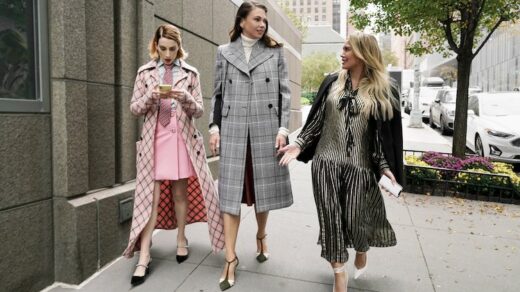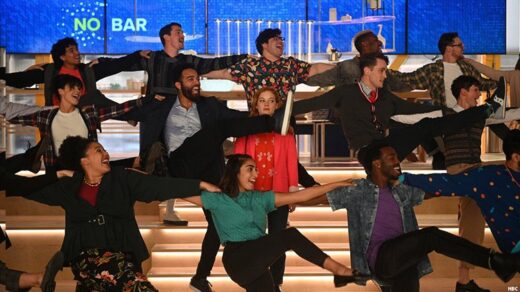Chicago Mayor Lightfoot Criticized Over Favoring Journalists of Color
Author: Trudy Ring

Chicago Mayor Lori Lightfoot announced she would grant one-on-one interviews to mark her two-year anniversary in office only to Black and brown reporters saying she wanted to highlight the need for more racial diversity in newsrooms. But it has brought her criticism from journalists and political observers, with even some of her defenders saying she went about it the wrong way.
Lightfoot, a lesbian, is the first Black woman and first out member of the LGBTQ+ community to be mayor of Chicago. The city’s political scene has always been tumultuous, and it’s been no different during Lightfoot’s tenure. In addition to the usual issues, she has had to deal with a pandemic and a reckoning around racism and police brutality. Some activists have denounced her as too supportive of police, others say she has done too little to address crime, and Chicago’s police union has taken a vote of “no confidence” in her governance. Some of her critics say the interview conditions amounted to a diversion from the city’s problems; some Black and brown journalists questioned the timing of the announcement.
She announced her conditions for the anniversary interviews Tuesday; Thursday marked the anniversary. “I’m thinking in this one day when we are looking at the two-year anniversary of my inauguration, as a woman of color, as a lesbian, it’s important to me that diversity is put front and center,” Lightfoot said, according to Chicago TV station WGN.
“If I as the Black woman mayor, the first ever, don’t challenge us, the collective us, to do better, to really make sure that in every institution it reflects the diversity, nuance, and texture … shame on me,” she added.
She released a letter explaining her decision. “I have been struck since my first day on the campaign trail back in 2018 by the overwhelming whiteness and maleness of Chicago media outlets, editorial boards, the political press corps, and yes, the City Hall press corps specifically. … It is impossible for this glaring lack of diversity not to be reflected in the daily coverage of government, politics and city life every single day,” it reads in part.
Her action outraged some. Gregory Pratt, a Latino reporter with the Chicago Tribune, tweeted that he originally agreed to interview Lightfoot for the anniversary but canceled when his request that she lift the conditions for others was denied. He also noted that in the past, she had turned down interviews with several journalists of color.
Several conservative commentators and politicians, such as Todd Starnes, Bill O’Reilly, and Tulsi Gabbard are calling Lightfoot’s action racist, usually without noting the discrimination against people of color throughout history. Other observers are saying that it’s important to highlight lack of newsroom diversity, but elected officials shouldn’t get to choose who covers them.
“I appreciate that the mayor is using her bully pulpit to shed light on an issue that many of us have decried and bemoaned for decades,” Charles Whitaker, dean of Northwestern University’s Medical School of Journalism, told WGN. “However, this is a really slippery slope. Having a politician attempt to sort of dictate coverage in a way is problematic.”
Some said there were better ways for Lightfoot to make her point. Mary Mitchell, a Chicago Sun-Times columnist who is Black, noted that elected officials reserving time for journalists of color is not unprecedented. Her immediate predecessor as mayor, Rahm Emanuel, often had off-the-record meetings specifically for Black journalists, and President Barack Obama met with a group of Black columnists early in his first term.
“Lightfoot’s mistake was not going directly to the heads of the newsrooms, TV and radio stations and having a conversation about that lack of diversity and the need for racial inclusion,” Mitchell wrote.
“The lack of diversity is a subject that newsrooms have wrestled with for decades,” she continued. “Lightfoot just dragged it out into the light of day for the public to see.”
“I’m not unhappy to see the mayor acknowledge that Chicago media need more diversity,” wrote another Black journalist, Pulitzer Prize-winning Chicago Tribune columnist Clarence Page. “Alas, she comes late to the game and with curious timing. By bringing up the subject now, at a time when the city continues to wrestle with more urgent issues, her sudden concerns with media diversity sound like a stunt, intended less to enlighten than to distract.”
“Major officeholders do routinely choose which requests to accept or reject for one-on-one interviews,” he went on. “The burning issue in essence here is whether they should be chosen based on the color of their skin. For too long, the wrong skin color or gender meant you were more likely to be rejected. For media workers and the audiences we serve, that had dire consequences.”
“So, as much as I dislike the mayor’s ham-handed timing, I applaud her giving attention to the issue,” Page concluded. “Now, anytime you need advice on how to run the city, Madam Mayor, I’m here.”
Original Article on The Advocate
Author: Trudy Ring





